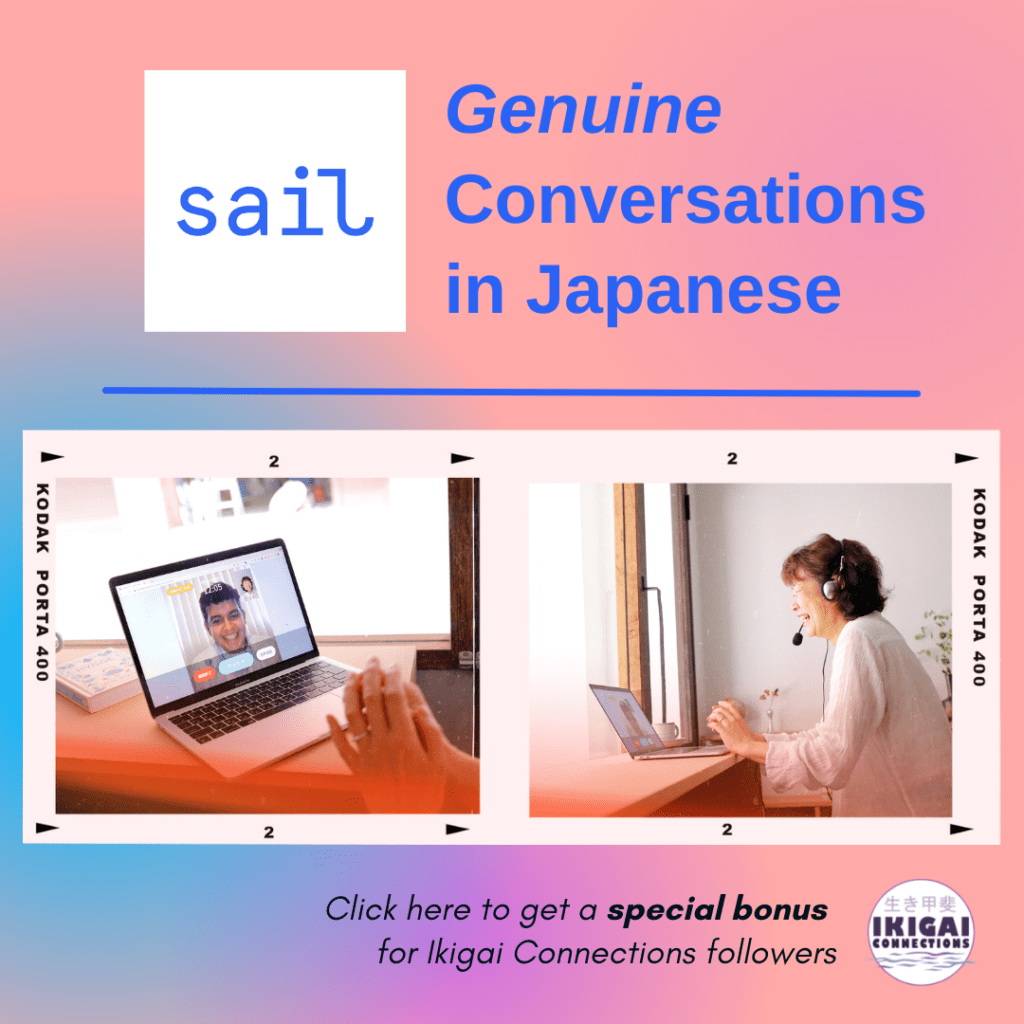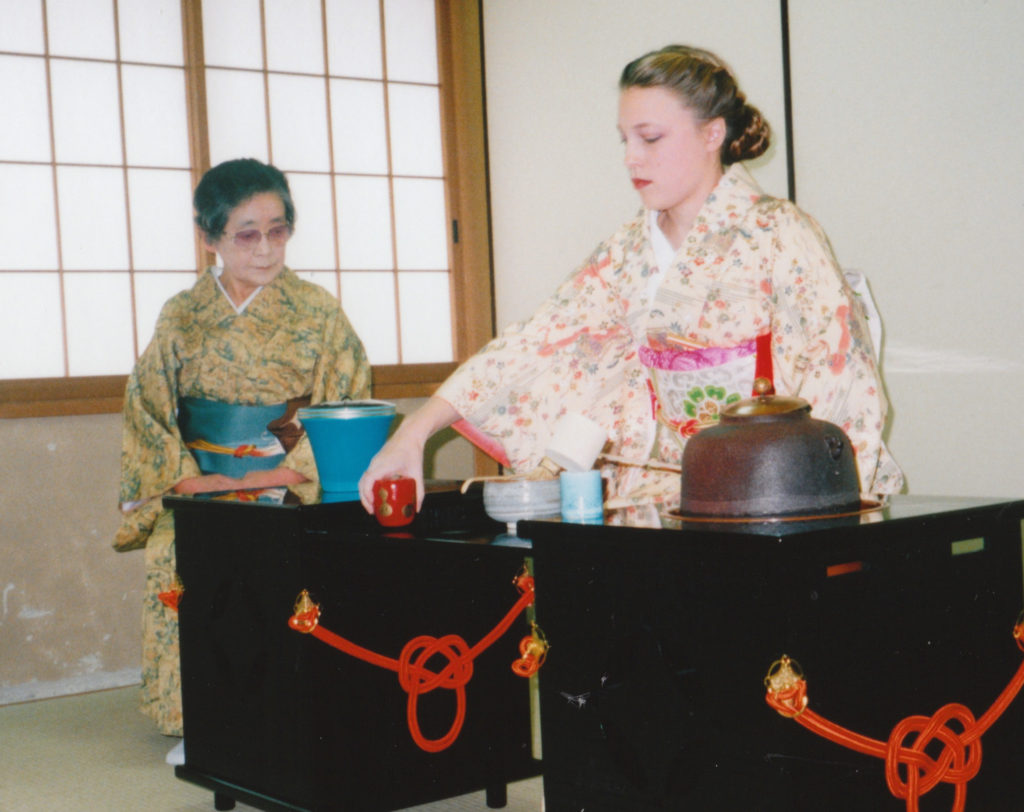Welcome to the Senpai Success Story, where you can read about others who have walked a unique career path using their Japanese language/cultural skills. (Senpai means “mentor” or “teacher,” and the concept is important to understand for anyone wishing to work in a Japanese business setting.)
Translating Your Language Skills Into a Career You Love
Jessica Kennett Cork (Vice President, Community Engagement and Corporate Communications, YKK Corporation of America)
When I was fifteen, I decided that I wanted to go to college to major in Japanese.
I grew up in rural New Hampshire. No one I knew had studied Japanese. No one I knew was interested in Japan. I didn’t have the slightest idea what one did with a degree in Japanese. But I was determined to pursue my dream.
Today I have a great career in a globally recognized Japanese company, and I get to use Japanese every day in my work.
Here is how I got there, along with some lessons I learned along the way.
Don’t Fear the Unknown
I have been interested in Japan since I was about 10 years old. When I was in high school, I heard about an opportunity to do a homestay overseas during the summer, and I immediately ran home to my parents and begged them to let me go to Japan for 8 weeks.
I was beyond excited about going, but as I was packing my bags, the fear started setting in. I had never really been away from my parents, at least not for 8 weeks. I spoke no Japanese. This was pre-Internet and pre-cellphone, which meant basically no communication with my family and friends for the whole summer.
I’ll never forget standing on the platform with a Japanese family I had never met, waving at American friends as the train pulled away from the station. I was about to burst out sobbing. What had I done? I can’t live by myself in a foreign country for 8 weeks! I don’t speak Japanese! I’m a super picky eater; I can’t eat fish with bones and natto all summer!
Of course, I went on to have the most incredible cultural experience of my life.
Moreover, I learned a valuable lesson that has guided me over and over again – don’t let fear dictate what you will do in life.

Pursue Your Dreams (Even if You’re Unsure)
My summer in Japan convinced me that I wanted to become fluent in Japanese, so I entered the University of Massachusetts as a Japanese Language and Literature major.
In retrospect, I am so grateful to my parents for allowing me to do this because none of us had the slightest idea what one does with a Japanese language major upon graduation, except perhaps translating or interpreting.
I had no idea where my career would lead, and no sense of the practical applications for what I was studying, but what I did have was passion and determination to be successful.
If it’s really a dream, then you persevere – you don’t quit.
Pursuing Your Dreams Takes Hard Work
What I mean by determination is the willingness to put in countless long hours mastering hundreds of kanji, only to forget them and have to learn them all over again.
“Pursue your dreams” sounds so inspirational when it’s written on a framed poster on a wall, but the reality is that for the entire first year after I started studying Japanese, I found it so difficult that I truly wanted to quit.
Then I went to Japan to study at ICU in Tokyo during junior year and truly learned the meaning of difficult! I took 6-8 hours of Japanese classes per day, sociology and history classes taught in Japanese, had term papers to write in Japanese, and even learned complicated Japanese folk dances as my extracurricular activity.
But if it’s really a dream, then you persevere – you don’t quit, even when you cannot see the light at the end of the tunnel.

Try Something New
I had two options after graduating – accept a scholarship from the Japanese government to pursue a master’s degree at Doshisha University in Kyoto, or join the Japan Exchange and Teaching (JET) Program and work as a Coordinator for International Relations in rural Hiroshima.
It was a really hard decision, and I think was one of the pivotal decisions in my life.
I was tempted by the Doshisha option because I would come out of the experience with a master’s degree. Plus, wouldn’t Kyoto be a phenomenal place to live for two years?
But I ultimately decided on the JET Program. The reason was that I had already lived in a big city in Japan, and I had already experienced being a student on a university campus. I wanted a new experience – the opportunity to live in rural Japan and to work in a Japanese office.
I ended up staying in that town for three years and had a life-changing experience. My Japanese language skills, as well as my understanding of Japanese work culture, improved exponentially and I made lifelong friends.
I also learned that when you are not sure what path to take, sometimes it is best to deviate from the “safe” path – take a risk and try something you have not done before.
Take Advantages of Opportunities While You Can
After I finished the JET Program, I did not have a job lined up yet in the United States, so I took advantage of the time I had to spend 4 months backpacking my way home from Japan, visiting 20 countries in Southeast Asia, the Middle East, Africa, and Europe along the way.
Looking back, there are two things I learned from this experience.
One is to take advantage of the freedom you have in your youth. Sometimes I see young people too eager to start their careers immediately upon graduating. I encourage you to take some time off and experience the world – I have four kids, a career, and a mortgage now and can tell you firsthand that no matter how much you think there will be these opportunities in the future, it gets significantly harder as you get older to take time off from work and visit Malaysia with four kids in tow. It’s not that it can’t be done; it’s just really hard. Do it now!
Secondly, travel to foreign countries, especially when you don’t know the language, can build so much confidence and help you get over the fears you may have in other parts of your life. Case in point – to visit an elephant sanctuary in Thailand, I had to take two buses where the destination on the buses was only written in Thai and I could not pronounce the place where I wanted to go so that the driver could understand me. But I figured it out!
Experiences like this help you understand that you can do things you never thought you could.
Even jobs that are not a good fit for you have a lot to teach you.
Every Job Has Something to Teach You
When I finally returned to the United States, I still had no idea what I could do with a Japanese language major, so I did the logical thing and got a job as an interpreter at a manufacturing company. Something I really recommend that you do when looking for a job is to register with recruiters who specialize in bilinguals. It was free for me and they found a job for me in less than two weeks.
But I ran into a problem. I found out very quickly that I hate interpreting! I don’t like the pressure of it, and I don’t like not having something physical that remains at the end of the day to show for my hard work. But what I learned from that job is that even jobs that are not a good fit for you have a lot to teach you about what you enjoy and what you don’t.
Just don’t stay too long in a job in which you are not happy or is not a fit for you.
Luckily, my next job was my dream job. I worked in the cultural and educational affairs department at the Consulate General of Japan in Atlanta and had the opportunity to plan amazing events, select JET Program participants, send students to Japan on study abroad programs, and expand my network in Georgia tremendously. I remained in that position for 11 years.
Eventually, I was interested in finding a position with more responsibility, but I found myself stuck again. I really didn’t know what to do – where else could I use my Japanese language skills? My mission in life, what really inspires me, is building bridges between Japanese and Americans and sharing my love of Japanese culture. Where else in Atlanta could I do that besides the Consulate?

Build Your Network Through Volunteering
Have you ever heard that an estimated 70% of jobs are not advertised? Do you know how you find out about those jobs? Networking!
But what happens when you are introverted like I am and hate walking around networking events shaking hands with a bunch of people you don’t know? You volunteer to do the thing you love!
I started volunteering with the Japan-America Society of Georgia and the Japanese Chamber of Commerce of Georgia as soon as I moved to Georgia in 2001. Through those organizations, I met the CEO of YKK Corporation of America. Our paths crossed multiple times and worked together on several events.
Twelve years after we first met, I was given the opportunity to join YKK.
Don’t Be Afraid to Stretch Yourself
When I was offered the position at YKK, I had reservations – first about working in a corporate setting and secondly about whether I could do the job. Most of my career had been spent working for governmental organizations and I had never been a manager. There was so much to learn.
Never be afraid to stretch yourself, even if you are not sure you can do it.
In order to grow, you need to take on new challenges and increasing responsibilities.
If you are waiting for the day when you are one hundred percent qualified for a job, that day will never come.
Be a Lifelong Learner
This brings me to my final bit of advice – learning should not stop when you graduate from school. I got my master’s degree in Japanese via distance while working full time and with three kids under five years old at home. Be a lifelong learner, persevere, and don’t let anything get in the way of accomplishing your goals.
About Jessica
LinkedIn: Jessica Kennett Cork
Facebook: Jessica Kennett Cork
Instagram: @jessica.k.cork
Twitter: @JessicaKCork
Jessica Kennett Cork is Vice President of Community Engagement and Communications at YKK Corporation of America. Her primary responsibilities include managing government relations, public relations, and corporate communications for YKK Corporation’s North and Central America Group; serving as the regional liaison with YKK corporate headquarters in Japan for global public relations and communications; planning corporate events; managing the region’s corporate philanthropy and community outreach programs; and leading the Group’s Philosophy and Core Values initiative.
Cork is fluent in Japanese and has more than two decades of experience working in Japanese organizations. She has B.A. in Japanese Language and Literature from the University of Massachusetts, and an M.A. in Advanced Japanese Studies from the University of Sheffield in the U.K. Prior to joining YKK, she worked as the Adviser for Educational and Cultural Affairs at the Consulate General of Japan in Atlanta and spent 3 years as a Coordinator for International Relations in Hiroshima, Japan.
Cork currently serves as Vice Chair of The Japan-America Society of Georgia and Secretary of the Governing Board of the International Charter Academy of Georgia, and is a member of the Communication Committee of The Georgia Council on Economic Education. She has four children, all of whom have attended Japanese-English bilingual immersion schools in the Atlanta area, and has traveled to 25 counties around the world.